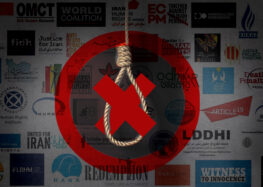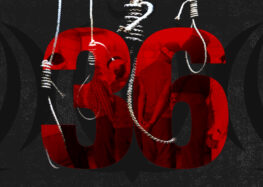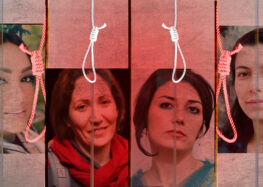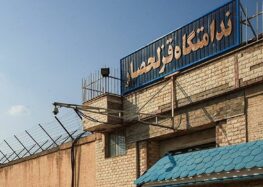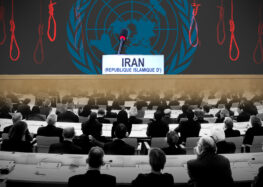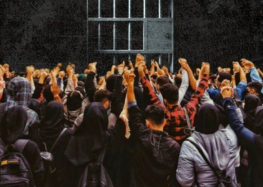Street Protester Facing Imminent Execution in Iran Should be Released
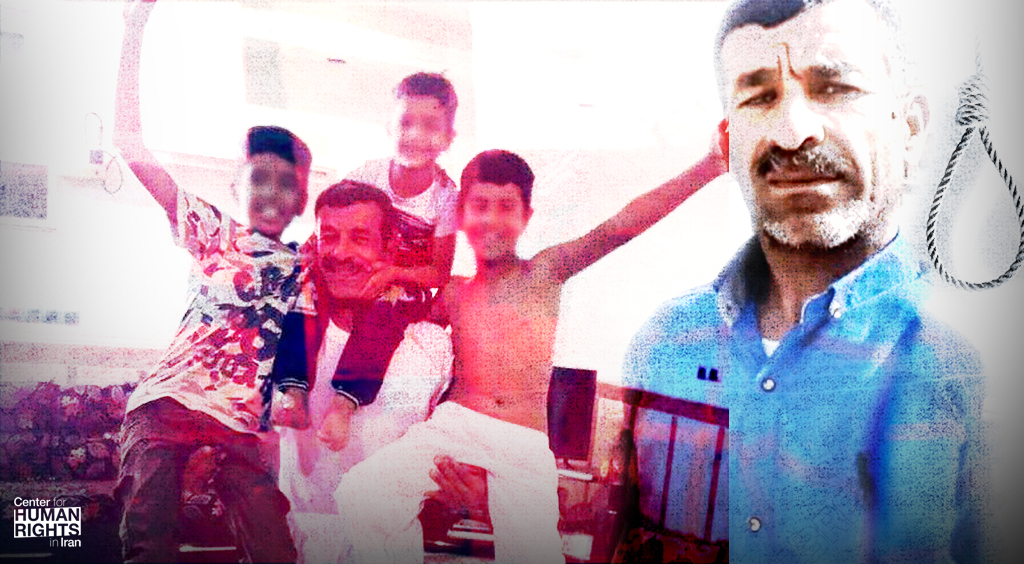 Abbas Deris Sentenced to Death after Torture, Lack of Evidence, and Gross Due Process Violations
Abbas Deris Sentenced to Death after Torture, Lack of Evidence, and Gross Due Process Violations
Lawyer Being Prosecuted for Defending Him
February 22, 2024 – The Center for Human Rights in Iran (CHRI) condemns the imminent execution of Abbas Deris, a street protester in Iran who was tortured and coerced into falsely confessing to a crime without any solid evidence implicating him.
Despite glaring violations of due process and a pending request for a stay of the execution, Iranian authorities are pushing forward with Deris’ execution.
“This is a tragedy in the making,” stated Hadi Ghaemi, executive director of CHRI. “The torture endured by Deris, coupled with the denial of due process rights and the absence of credible evidence against him, underscores the lawlessness of Iran’s judicial system.”
“He should be immediately released,” Ghaemi added. “This relentless persecution of protesters and the prosecution of their defenders must cease.”
CHRI joins a chorus of international human rights organizations demanding the immediate release of Deris, a 50-year-old laborer and member of the ethnic Arab minority group in Khuzestan Province, and urges Iranian authorities to allow him to reunite with his three boys, who have already endured the sudden death of their mother shortly after their father was detained.
CHRI notes that ethnic minorities in Iran are subjected to institutionalized discrimination in the judicial system and are disproportionately handed lengthy prison and death sentences.
CHRI urges global leaders to intensify pressure on the Islamic Republic and demand an immediate halt to escalating executions, including of political prisoners and minors.
Governments dedicated to upholding the right to life and fundamental human rights are urgently called upon to:
- Summon Iranian ambassadors, delivering an unequivocal condemnation of these executions and issuing a stark warning of severe diplomatic and economic isolation should the unlawful killings persist.
- Release bold and public statements, both unilaterally and in international forums, forcefully denouncing these executions and demanding an immediate end to this egregious violation of human rights.
- Actively collaborate with allies, partners, and other governments, to advance joint initiatives that impose robust diplomatic and economic consequences for the continuation of these unlawful executions.
Convicted of Murder Despite Absence of Evidence
Deris was accused of killing Reza Sayyadi, an officer of the police special forces, amid state security forces’ lethal repression of street protests in the city of Mahshahr on November 18, 2019, during which dozens of protesters were killed.
Deris witnessed that mass killing, according to a source with detailed knowledge of his case who spoke to CHRI.
CHRI emphasizes that important facts of this case should result in the death sentence being thrown out and Deris being released due to lack of evidence.
For instance, during Abbas Deris’s trial, four members of the police security unit under the command of the victim were summoned to testify. None identified Abbas as the killer, said the source who spoke on the condition of anonymity for security reasons.
Instead, the court relied on statements by the IRGC as well as Deris’ forced false confession, which was aired on state TV to portray him as guilty in the eyes of the public before his trial. This action not only violated Deris’ right against self-incrimination but also undermined the presumption of innocence.
His death sentence was issued by the Islamic Revolutionary Court in October 2022 on the charge of “enmity against God” (moharebeh)—a charge frequently used against peaceful protesters in Iran which violates international criteria for crimes that can carry the death penalty.
“When Deris was sentenced to death, his lawyers first appealed the verdict, which was rejected, and then requested a review by the Supreme Court, which was also turned down,” said the source. “The only hope left is a stay [by the judiciary chief] under Article 477 of the Code of Criminal Procedure.”
Article 477 grants the judiciary chief the authority to intervene in legal proceedings by ordering a stay or suspension of execution in cases where there are grounds for review or reconsideration of a verdict.
“Many Ambiguities” Should See Rescinding of Death Sentence
The source with detailed knowledge of Deris case described the “many ambiguities” in Deris’ case to CHRI.
“First of all, Mr. Deris has weak vision, and he could not shoot at the victim from that distance,” said the source. “Another important issue is the testimony of those who appeared in court, and none of them were willing to confirm that Mr. Deris was the shooter.”
“They said they had no idea who fired the shots. Basically, the distance between Mr. Deris and the police officer was so great that it was not possible to shoot accurately, and no bullets were found at all,” added the source.
Continued the source: “On the other hand, Abbas Deris has not confessed to anything, except during interrogation by the IRGC intelligence agents, which was conducted under unjust circumstances while in solitary confinement and therefore has no validity. He also denied the charge in court.”
Forced confessions are inadmissible in court under Iranian law. In addition, Deris retracted his confession in court.
Deris, along with his brother Mohsen, were arrested on December 8, 2019, by agents of the Islamic Revolutionary Guard Corps (IRGC) based at the Abolfazl Headquarters.
Held by the IRGC’s intelligence organization in the city of Mahshahr for more than three months, they were charged with “waging war,” firing guns at officers and people, and committing deliberate murder.
While detained, they were tortured and coerced into making false confessions, the source told CHRI.
They were also denied visitors or outside contacts except for one-minute phone calls to family once a month during which they were not allowed to reveal why or where they were detained.
Deris’ brother was released on bail in October 2023. Deris’ sons, ages 8, 13 and 17, are being cared for by grandparents as their mother died of a heart attack shortly after his arrest.
Lawyer Being Prosecuted for Defending Deris
Meanwhile, Fereshteh Tabanian, Deris’ lawyer, has faced prosecution in two separate cases brought by the security establishment for her persistence in proving her client’s innocence.
In one case she has been sentenced to three months in prison for “propaganda against the state” while in another case she was charged with “membership in groups opposed to the state” but the latter was dropped.
Lawyers who defend members of minority communities in court are typically subjected to particularly harsh state retribution in the Islamic Republic.
Iran Is Leader in Unlawful Executions
More than 834 people were hanged in the Islamic Republic of Iran in 2023 after sham trials where defendants were denied internationally recognized standards of due process and fair trial rights, including the right to a full defense.
In the first month of 2024, at least 54 people have reportedly been put to death in the country.
The Islamic Republic is not only the leading per capita executioner in the world, its executions are blatantly unlawful, marked by: use in cases where there has been flagrant denials of due process and convictions based on confessions extracted under torture; executions for crimes that do not meet the international standards of only the most serious crimes; the intensifying use of the death penalty against political opponents; and its disproportionate use against minorities.
Read this report in Persian
This report was made possible from donations by readers like you. Help us continue our mission by making a tax-deductible donation.

